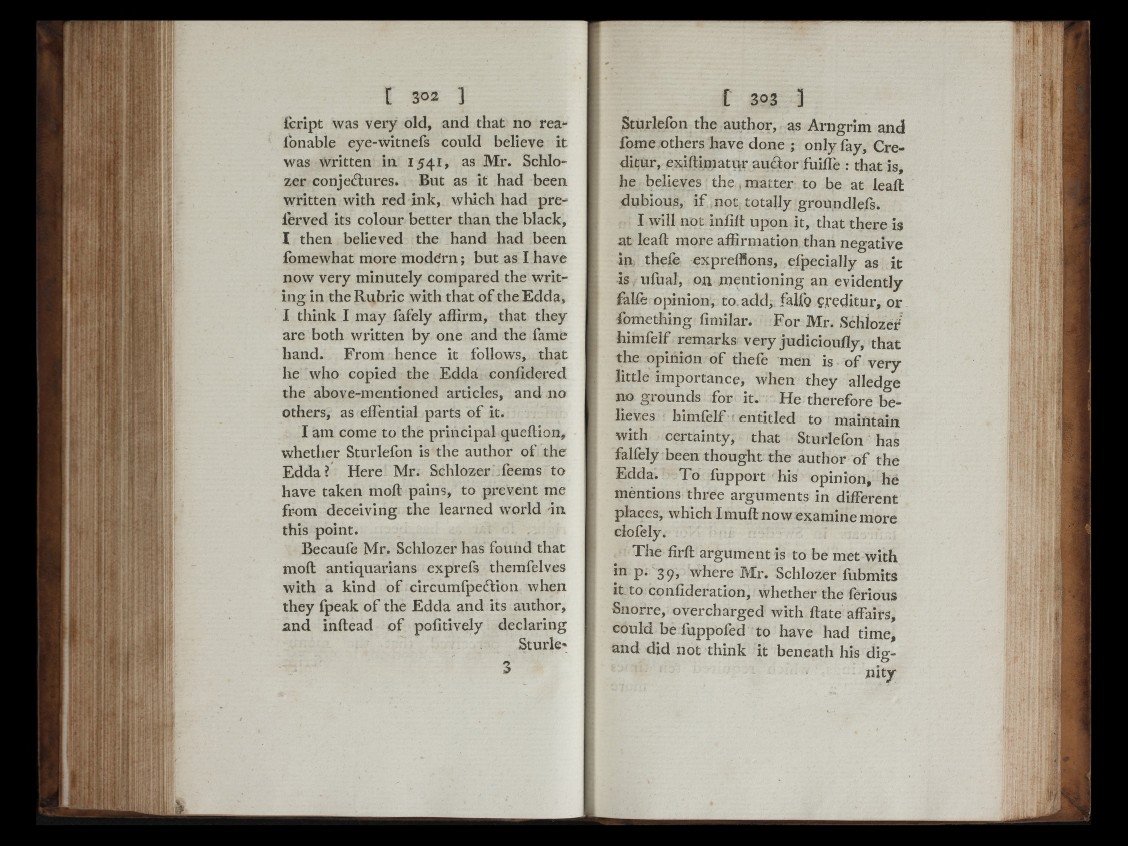
5 ’ i r i f r i r i .
■ k f . ■ ,l ■
‘.'G77 'i
■ : :]
‘■I
;' i
ik
[ 302 ]
icript was very old, and that no rea^
ibnable eye-witnefs could believe it
was written in 1541, as Mr. Schlo-
zer conjedures. But as it had been
written with red ink, which had pre-
lervcd its colour better than the black,
I then believed the hand had been
ibmewhat more modern; but as I have
now very minutely compared the writing
in the Rubric with that of the Edda,
I think I may fafely affirm, that they
are both written by one and the fame
hand. From hence it follows, that
he who copied the Edda confidered
the above-mentioned articles, and no
others, as effential parts o f it.
I am come to the principal queftion,
whether Sturlefon is the author of the
Edda? Here Mr. Schlozer feems to
have taken moft pains, to prevent me
fiK)m deceiving the learned world an.
this point.
Becaufe Mr. Schlozer has found that
moft antiquarians exprefs themfelves
with a kind of circumfpeflion when
they fpeak of the Edda and its author,
and inftead o f poiitively declaring
Sturle*
[ 303 3
Sturlefon the author, as Arngrim and
fome others have done ; only fay, Cre-
ditur, exiftimatur audor fuifte : that is,
he believes the . matter to be at leaft
dubious, i f not totally groundlefs.
I will not iniift upon it, that there is
at leaft more affirmation than negative
in thefe expreffions, efpecially as it
is ufual, on mentioning an evidently
falfe opinion, to add, falfg grcditur, or
fomething iimilar. For Mr. Schioze/
himfelf remarks very judicioufly, that
the opinion o f thefe men is o f very
little importance, when they alledge
no grounds for it. He therefore believes
himfelf entitled to maintain
with certainty, that Sturlefon has
falfely been thought the author o f the
Edda. To fupport his opinion, he
mentions three arguments in different
places, which I muft now examine more
elofely.
The firft argument is to be met with
in p. 39, where Mr. Schlozer fubmits
it to confideration, whether the ferious
Snorre, overcharged with ftate affairs,
could be fuppofed to have had time,
and did not think it beneath his dignity
■ ■ ■fi?;
I my